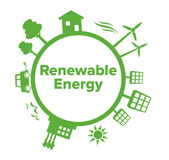Our environmental policy is to reduce our carbon footprints by usage of recycled materials & making minimal impact to the environment by our production activities.
Below are some of our initiatives in this direction:

Reuse, Reduce, Recycle – We use several thousands of tons of recycled scrap iron as part of our environment conservation drive.
More than 95% of are molding sand is recycled and is prepared from our sand recycling plant.

Go Green Initiative – As a part of our “Go Green Initiative” we have planted trees and greenery all around our factories and surrounding areas.

Use of Renewable Energy – We have installed solar panels for generating electricity in our factory which is utilized for powering our office buildings. This is a small initiative by us for the start of use of renewable energy thereby reducing our carbon footprint.